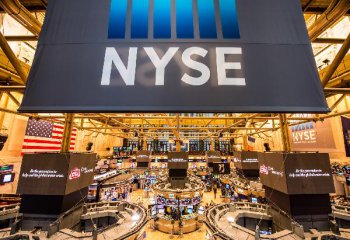
U.S. stocks closed mixed on Wednesday, with the Dow notching fresh record high, after U.S. Federal Reserve raised the benchmark interest rates for the fourth time since December 2015.
"In view of realized and expected labor market conditions and inflation, the (Federal Open Market) Committee decided to raise the target range for the federal funds rate to 1 to 1.25 percent," said the Fed in a statement after concluding its two-day monetary policy meeting.
The Dow Jones Industrial Average hit fresh record close on Wednesday, ending 46.09 points higher.
"Equity markets continue to hit new highs in the U.S. with apparent little fear that the Fed will stifle growth through a series of rapid interest rate increase," Humberto Garcia, head of Global Asset Allocation for Leumi Investment Services, told Xinhua.
The central bank acknowledged the continuous progress in labor market while expressed their concerns over weak inflation. Fed officials lowered their forecast for unemployment rate for 2017 down to 4.3 percent, compared to 4.5 percent projection made in March, while their forecast for inflation rate in 2017 was revised down to 1.6 percent from their forecast of 1.9 percent in March.
"The softer pace of core inflation in coming months will make it much harder for the Fed and other analysts to explain away the weakness as transitory," said Omair Sharif, senior U.S. Economist at Societe Generale.
He also mentioned many of the components of core inflation have decelerated in recent months. The Consumer Price Index (CPI) for all urban consumers decreased 0.1 percent in May on a seasonally adjusted basis, the U.S. Labor Department reported Wednesday.
Over the last 12 months, the all items index rose 1.9 percent. The index for all items less food and energy increased 0.1 percent in May, and it rose 1.7 percent over the past 12 months.
Despite the weak inflation, the central bank continues to see improvement in the economy and expected the economy to grow 2.2 percent this year, compared to their forecast of 2.1 percent in March.
"With a June rate hike already priced into the market, the focus shifts immediately to the Fed's intentions for the rest of the year," said Garcia.
Fed officials' forecast for rate hike pace barely changed compared to March's projections. According to their forecast, there will be one more rate hike this year, and three more next year.
"All told, we think the current medians for the Fed rate hike path will hold steady," said Craig Bishop, lead strategist for U.S. Fixed Income, RBC Wealth Management-U.S.
Fundamentally, higher interest rates increase the value of a country's currency because those higher interest rates generally attract foreign investors to that country.
However, the U.S. dollar continued to decline against most major currencies on Wednesday after the central bank's decision.
"Clearly, it is never that simple in foreign exchange markets as there are many other factors to consider, such as market positions and expectations of further rate hikes," Stephen Simonis, Sr., currency consultant for FXDD Global, told Xinhua.
The dollar index, which measures the greenback against six major peers, was down 0.08 percent at 96.901 in late trading Wednesday.
"Two main factors however come in to play specifically in this case - a country's political and economic stability. While the United States' economy is steady, its political situation is anything but stable. Distractions in Washington can slow the new administration's tax reforms and fiscal stimulus agenda. It is just too simplistic to say that higher interest rates equals a stronger dollar especially since the rate hike is widely expected has already been factored in the exchange rate," Simonis said.
On the other economic front, advance estimates of U.S. retail and food services sales for May decreased 0.3 percent from the previous month to 473.8 billion U.S. dollars, the Commerce Department announced Wednesday.
The CBOE Volatility Index, widely considered the best gauge of fear in the market, rose 2.11 percent to 10.64.




















Latest comments